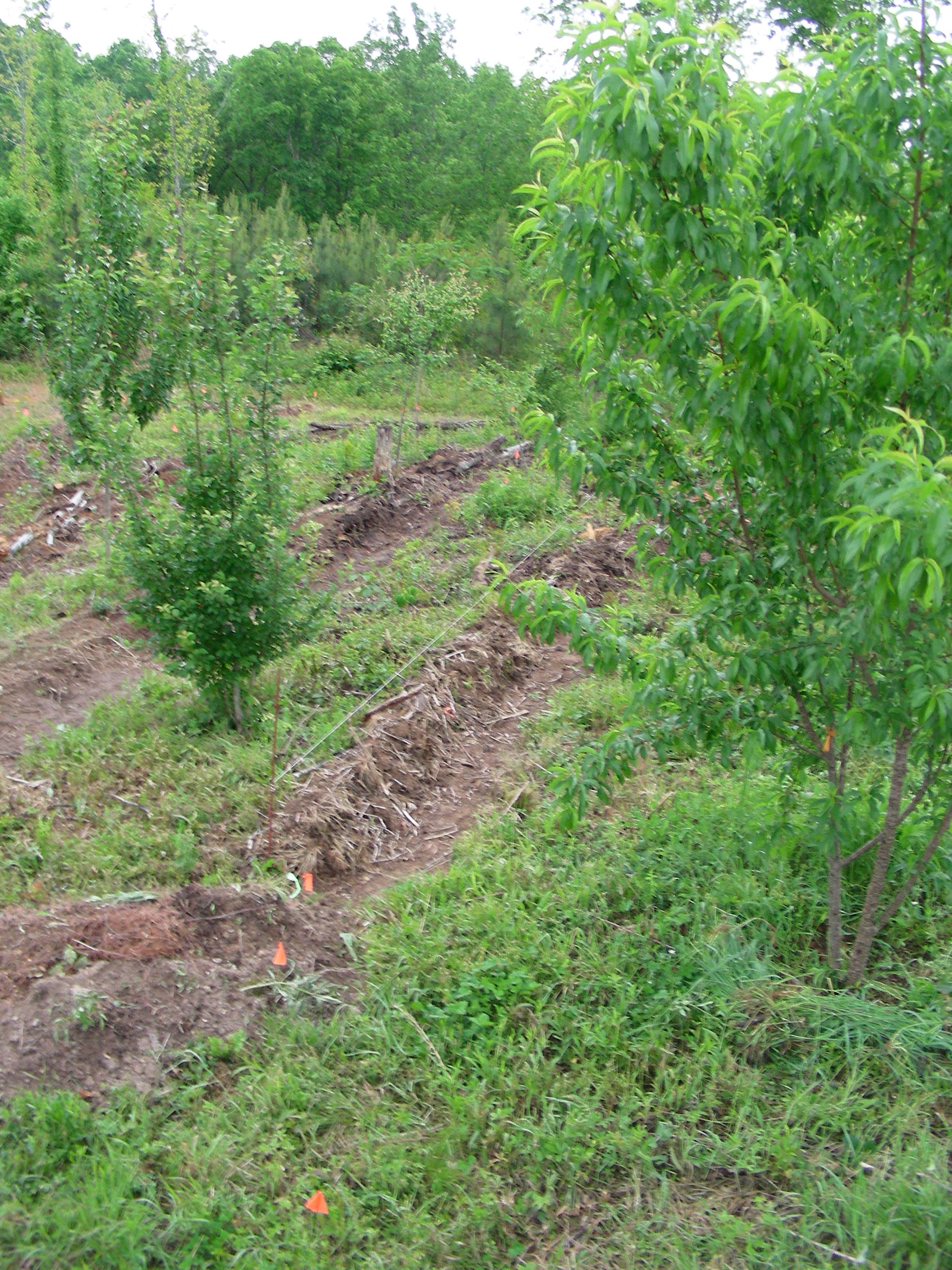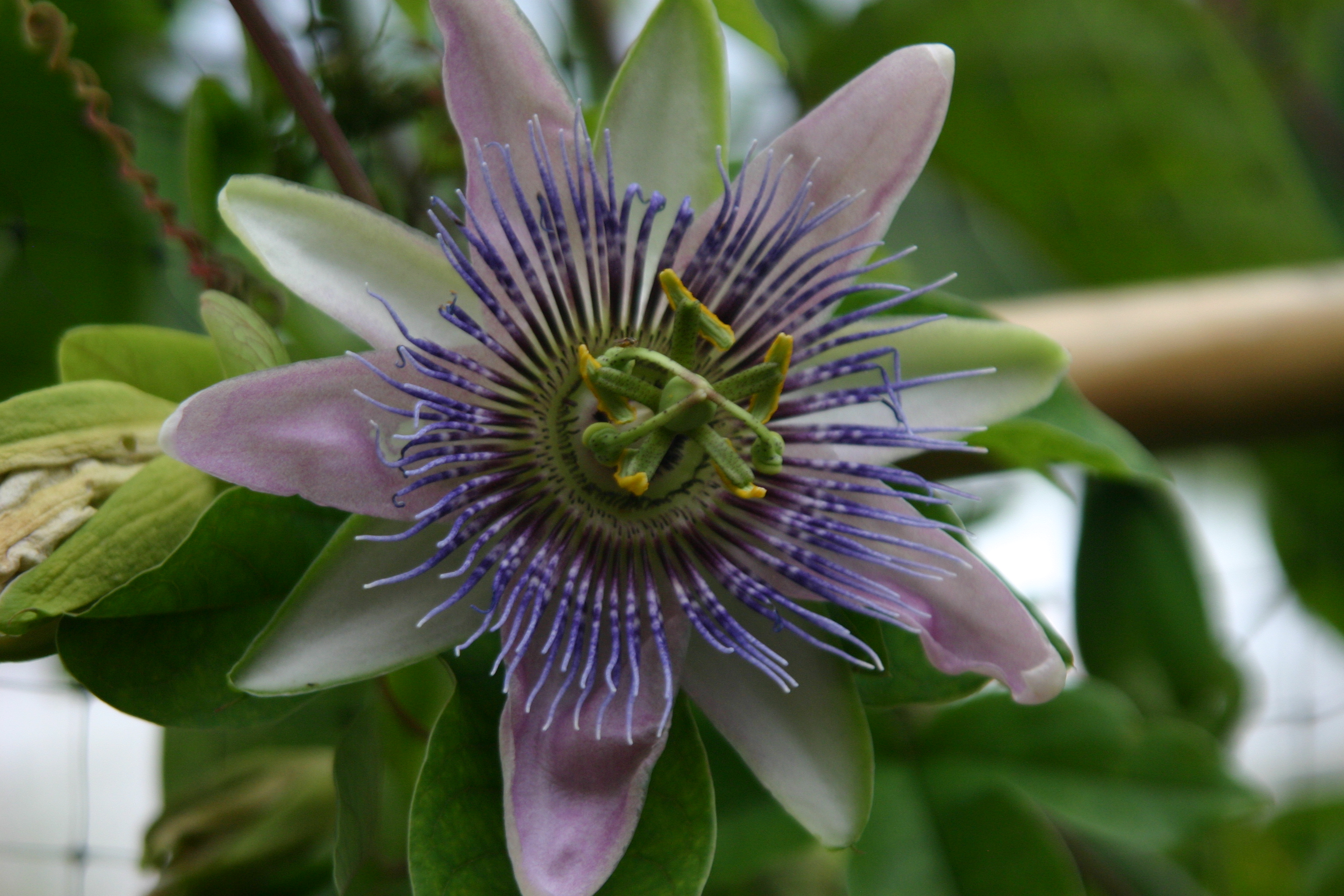


|
Commenced:
|
01/09/2004 |
|---|---|
|
Submitted:
|
04/02/2011 |
|
Last updated:
|
07/10/2015 |
|
Location:
|
P.O. Box 451, Hohenwald, Tennessee, US |
|
Phone:
|
888-878-2434 x 8 |
|
Website:
|
www.solarsprings.net |
|
Climate zone:
|
Warm Temperate |
Solar Springs Permaculture is a research farm conducting work in land restoration, food production, and appropriate technologies; and a business providing consulting and educational services to the global community and farm goods and nursery stock to its neighbors. It is also the home of Solar Springs LLC and Center for Holistic Ecology founders Jennifer and Matthew English, who reside in the off-grid Solar Springs Lodge. At Solar Springs, we are committed to living and sharing our values of sustainability, diversity, creativity and beauty—all modeled in the design and construction of our Lodge and through the development of our demonstration farm and businesses.
Solar Springs is comprised of a Permaculture research farm conducting work in land restoration, food production, and appropriate technologies; and a business providing consulting and educational services to the global community and farm goods and nursery stock to its neighbors. It is also the home of Solar Springs LLC and Center for Holistic Ecology founders Jennifer and Matthew English, who reside in the off-grid Solar Springs Lodge.
At Solar Springs we are committed to living and sharing our values of sustainability, diversity, creativity and beauty—all modeled in the design and construction of our Lodge and through the development of our farm and businesses.

picture: 2009 Permaculture Design Course at Solar Springs
Solar Springs Research Farm is dedicated to sustainable land use. We apply Permaculture design techniques and principles to establish land use patterns with a primary focus on agroforestry, bamboo and perennial food crops. We offer information, workshops, tours of our demonstration site, and support to others interested in long-term sustainability. We are available to teach workshops in your area on Permaculture, agroforestry, natural building, water catchments, appropriate technology and bamboo.

picture: swales dug in newest forest garden

picture:Matthew English teaching how to spin spoons on wooden lathe
Solar Springs Lodge is a 2000 square foot timber frame structure with cordwood, adobe and clay/straw infill. We are 100% off grid and derive 90% of our power from solar, wind and biomass. We acquire the remaining 10% from propane and gasoline, which will decrease to 5% hopefully within the next year. We have water catchments that will hold 17,000 gallons of water.

picture: timber frame-cordwood lodge initial construction 2005
We own a second-hand hybrid electric car, and our truck runs on ethanol, biodiesel or straight vegetable oil. The furnishings for our Lodge—as well as a good deal of the materials to build it—were pieced together largely from second hand stores, salvage piles, thrift shops, and “slightly damaged” bins. Those we bought new were recyclable, local, handmade or non-toxic.
At Solar Springs we are committed to living and sharing our values of sustainability, diversity, creativity and beauty—all modeled in the design and construction of our Lodge. We built it as sustainably as possible with the help of friends over a period of two years using local, natural materials and second-hand or hand-made items. The design is meant to be multifunctional—practical, applicable, adaptable, and beautiful as well as cycling energy back into the living ecosystem of which we are a part.
We designed the Lodge creatively, yet with a pleasing aesthetic that we hope feels comfortable and inspiring for people used to conventional building styles. We want others to see that our natural second-hand construction and off-grid living is a real possibility that can be enjoyable and very comfortable. We also kept good track of our receipts to show that building green can be economically savvy too, especially when you calculate money saved over the long term as well as social and environmental costs.

picture: Interior wall (cord wood with cob in-fill and glass) at Solar Springs Lodge

picture: Matthew English checking on a queen bee in new hive

picture: Graywater pond at Solar Springs

picture: 22' x 22' Herb Spiral at Solar Springs

picture: Passion fruit plentifully growing on shade trellises - useful as food/medicine
Note: The various badges displayed in people profiles are largely honesty-based self-proclamations by the individuals themselves. There are reporting functions users can use if they know of blatant misrepresentation (for both people and projects). Legitimacy, competency and reputation for all people and projects can be evidenced and/or developed through their providing regular updates on permaculture work they’re involved in, before/after photographs, etc. A spirit of objective nurturing of both people and projects through knowledge/encouragement/inspiration/resource sharing is the aim of the Worldwide Permaculture Network.
 |
MemberA member is a permaculturist who has never taken a PDC course. These cannot become PDC teachers. Members may be novice or highly experienced permaculturists or anywhere in between. Watch their updates for evaluation. |
|---|---|
  |
Permaculture MatchmakerOne of these badges will show if you select your gender and the "I'm single, looking for a permaculture partner" option in your profile. |
 |
PDCPeople who claim to have taken a Permaculture Design Certificate (PDC) course somewhere in the world. |
 |
PDC VerifiedPeople who have entered an email address for the teacher of their PDC course, and have had their PDC status verified by that teacher. Watch their updates for evaluation. |
 |
PRI PDCPeople who’ve taken a Permaculture Research Institute PDC somewhere in the world. |
 |
PDC TeacherPeople who claim to teach some version of PDC somewhere in the world. |
 |
PRI TeacherWith the exception of the ‘Member’ who has never taken a PDC, all of the above can apply to become a PRI PDC Teacher. PRI PDC Teachers are those who the PRI recognise, through a vetting board, as determined and competent to teach the full 72-hour course as developed by Permaculture founder Bill Mollison – covering all the topics of The Designers’ Manual as well as possible (i.e. not cherry picking only aspects the teacher feels most interested or competent in). Such teachers also commit to focussing on the design science, and not including subjective spiritual/metaphysical elements. The reason these items are not included in the PDC curriculum is because they are “belief” based. Permaculture Design education concerns itself with teaching good design based on strategies and techniques which are scientifically provable. PRI PDC Teachers may be given teaching and/or consultancy offerings as they become available as the network grows. |
 |
Aid WorkerThe individual with this badge is indicating they are, have, or would like to be involved in permaculture aid work. As such, the individual may or may not have permaculture aid worker experience. Watch their updates for evaluation. |
 |
ConsultantThe individual with this badge is indicating they are, have, or would like to do paid permaculture design consultancy work. As such, the individual may or may not have permaculture consultancy experience. Watch their updates for evaluation. |
 |
Community ProjectCommunity projects are projects that help develop sustainable community interaction and increase localised resiliency. |